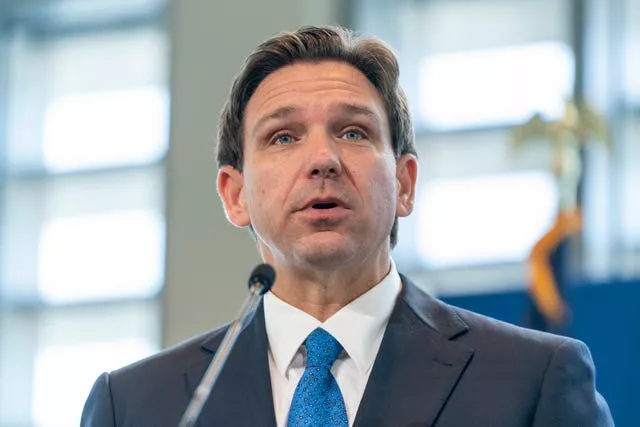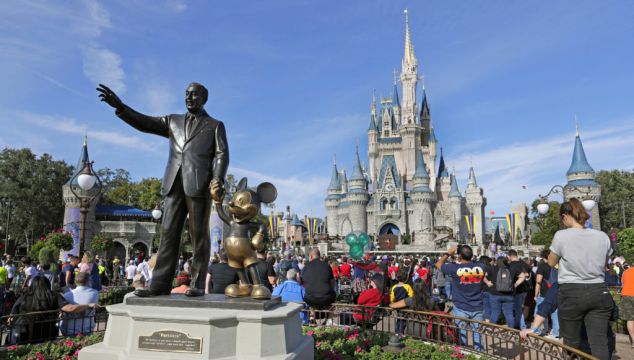Days after Disney sued Florida’s governor in federal court for what it described as retaliation for opposing the state’s so-called “Don’t Say Gay” bill, members of Disney World’s governing board – made up of governor Ron DeSantis appointees – authorised a lawsuit against the entertainment giant.
Members of the Central Florida Tourism Oversight District voted unanimously to sue Disney in state court in the Orlando area, as well as defend itself in federal court in Tallahassee where the entertainment company filed its lawsuit last Wednesday.
The Disney lawsuit against the governor, the board and its five members asks a judge to void the governor’s takeover of the theme park district previously controlled by Disney for 55 years.
The oversight board’s lawsuit seeks to maintain its oversight of design and construction in the district that governs Disney World’s 25,000 acres after the previous Disney-controlled board signed over those powers to the company before the DeSantis-appointed board members held their first meeting earlier this year.

“We will seek justice in our own backyard,” said Martin Garcia, chair of the Central Florida Tourism Oversight District.
Disney’s lawsuit was the latest tug-of-war in a more than year-old feud between Disney and Mr DeSantis that has engulfed the governor in criticism as he prepares to launch an expected presidential bid in the coming months.
Mr DeSantis, who has framed himself as a Republican firebrand able to deftly implement his conservative agenda without drama, has dived headlong into the fray with the beloved company and major tourism driver, as business leaders and White House rivals attack his stance as a rejection of the small-government tenets of conservatism.
The fight began last year after Disney, in the face of significant pressure, publicly opposed a state law that bans classroom lessons on sexual orientation and gender identity in early grades, a policy critics call “Don’t Say Gay”.
As punishment, Mr DeSantis took over Disney World’s self-governing district and appointed a new board of supervisors that would oversee municipal services in the sprawling theme parks.
But before the new board came in, the company pushed though an 11th-hour agreement that stripped the new supervisors of much of their authority.
The creation of the self-governing district was instrumental in Disney’s decision to build near Orlando in the 1960s.
The company had told the state at the time that it planned to build a futuristic city that would include a transit system and urban planning innovations, so the company needed autonomy in building and deciding how to use the land.
The futuristic city never materialised and instead morphed into a second theme park that opened in 1982.
The current board members, before and after the vote authorising a state lawsuit against Disney on Monday, defended their work, claiming they were trying to promote better governance and bring the district into the 21st century.







